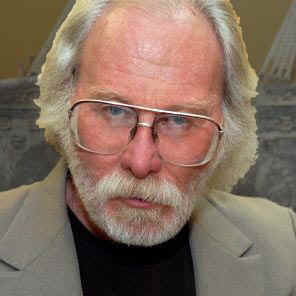Judges dispense justice. In Cook County, Alderman Ed Burke and his Democratic judicial slatemaking committee dispense judgeships.
For ambitious lawyers who aspire to $169,555-a year lifetime sinecures on the Circuit Court, ambitious judges who seek elevation to the $184,774-a year Appellate Court, or even for ambitious Appellate Court justices who covet the judicial pinnacle of the $196,322-a year Illinois Supreme Court, the proverbial yellow brick road leads first through Burke.
The bad news: Slating doesn't guarantee nomination. Of course, if you're Anne Burke, the alderman's wife, and you get slated for the Supreme Court, opposition tends to disappear. However, in the 2010 Democratic primary, slated candidates lost two of three Appellate Court nominations and two of six county Circuit Court nominations. Only half of the winners in judicial subcircuits were backed by local Democratic organizations. In prior primaries, the "slate" has won barely half the races.
"There aren't any (Democratic) precinct armies anymore," observed Mike Tierney, a city plumber who has carved out a lucrative niche for himself as the so-called "judge maker." He guides potential candidates through the labyrinth of slating, scheduling, endorsements and petitions. Tierney said that slating is less important than race, ethnicity, gender, ballot position, and labor union, bar association and newspaper backing. "Unions are the key," he said.
Under a new law, petition requirements for judicial candidates rose from 500 signatures to 1,000 signatures, and candidates can no longer file in multiple races. In the past they could file in several races, and they had 14 days to withdraw from all but one race, and adequate time to scope the opposition. Women won many Democratic primaries through multiple filing and then working to be the sole female candidate in a contest with several men.
Race also is a factor. Black voters supply half of the countywide Democratic vote. A candidate on the "black ballot" has an edge. In 2006 the black vote propelled the nonslated Appellate Court black candidate, Joy Cunningham, over the slated white candidate, David Erickson, by a 510-vote margin.
Here's an early analysis:
Supreme Court: Unlike any other state, Illinois elects justices by districts, not statewide. This ensures Democratic dominance of the court, and it clearly violates federal one person/one vote mandates.
Three of the seven justices are elected from Cook County, and all are Democrats. Once elected, they serve 10-year terms, then stand for retention. The Democrats have a 4-3 majority on the court.
According to the 2000 census, the 1st District (Cook County) had a population of 3,978,922 and elected three justices, or 1,326,307 voters per justice. The 2nd District, including DuPage, Kane, Kendall, Lake and McHenry counties and stretching to Iowa, had a population of 2,052,546, and it elected Republican Bob Thomas in 2000. The 3rd District, running from Kankakee to Rock Island, had a population of 1,188,714, and it elected Democrat Tom Kilbride in 2000. The 4th District, which runs from Champaign to Quincy, including Springfield, had a population of 975,494, and it elected Republican Rita Garman in 2002. The 5th District, which covers all of Southern Illinois, had a population of 978,155, and it elected Republican Lloyd Karmeier in 2004. This unequal population violates federal law.
The Cook County justices are Charles Freeman, an African American who was first elected in 1990, Burke, who was elected in 2008, and appointed Justice Mary Jane Theis, an Appellate Court justice who replaced Thomas Fitzgerald this year, for the term expiring in 2020; she must run in 2012.
Control of the Supreme Court is critical for the Democrats. Issues regarding labor, medical malpractice, tort reform, and state and congressional remaps are addressed by the court. Their 4-3 majority gives them great reassurance.
The 2012 primary for Fitzgerald's seat is already wild and wooly. Theis will be the slated candidate, but at least two Appellate Court justices are running. Joy Cunningham, who won an upset in 2006, is positioning herself as the "black ballot" candidate, solidifying support among black city and county committeemen. Aurie Pucinski, the daughter of the late 41st Ward alderman, who was elected to the Appellate Court in 2010, is a contender, and she has broad name recognition dating from her tenure as the clerk of the Circuit Court from 1988 to 2000.
Larry Rogers Jr., a Board of Review commissioner, is in a pondering stage, but his candidacy would split the black vote and doom Cunningham. So, too, would the candidacy of chief Circuit Court Judge Tim Evans, a former South Side alderman and a 1989 mayoral contender, who recently kept his post by a 169-70 vote of the judges. Bob Clifford, whose firm is the county's preeminent plaintiff's personal injury gladiator, is the wild card. He could readily self-fund and spend $3 million.
Race and gender are paramount. Two black candidates would ensure the nomination of a white candidate; one black candidate would defeat the field. Contrarily, one male candidate could defeat a field of three women.
Fitzgerald, the slated candidate, won the 2000 primary by just 20,390 votes over a black judge and onetime alderman, with two white candidates siphoning off votes. The Democratic "establishment" cannot tolerate an "untrustworthy" justice, which rules out Pucinski, an opportunist who switched parties in 1998 and then switched back, Cunningham, an independent, and Clifford, who would be anti-tort reform but not necessarily a Democratic tool. In 1976 rich trial lawyer James Dooley scored a huge upset over insider Joseph Power, Mayor Richard J. Daley's personal attorney, in the primary.
The outlook: Theis can get ready to return to the Appellate Court. Cunningham wins if she's the only black candidate. Clifford wins if he spends $3 million. Pucinski wins if Rogers runs and Clifford doesn't.
Appellate Court: Unlike the Circuit Court, where judges have to daily listen to inane, insipid and incredible verbiage from litigants and lawyers, the 24 Appellate Court justices simply review the lower courts' decisions, deciding if the judge ruled contrary to the manifest weight of the evidence. They exist in a surreal and elite world where clerks do the research, and, as part of their four-judge "division," they decide by a majority vote whether some Circuit Court judge screwed up.
Eight Appellate Court justices serve pursuant to Supreme Court appointment, and one or two elected justices may retire. That means up to 10 spots will be available, precipitating a Circuit Court stampede. Judges can run for a higher court without resigning their position.
Appointees Maureen Connors, Nathaniel Howse and Terrence Lavin will be slated. Appointees Rudolfo Garcia, Bertina Lampkin, Sheldon Harris, Marcus Salone and David Sterba must fend for themselves. Howse and Lampkin are black. Connors has connections with the Southwest Side 11th, 13th and 14th wards (meaning Madigan and Burke). Lavin, a personal injury lawyer and a party fund-raiser, leapfrogged over the Circuit Court due to Burke's clout.
A mad scrimmage will occur. Circuit Court Judges John Kirby (of the 11th Ward) and Patrick Sherlock (of the 19th Ward) are running and will be slated. Claudia Conlon, a former judge whose husband is Lisa Madigan's consultant, also is running. So are Judges Jim McGing and Clare McWilliams, from the Northwest Side 10th Subcircuit. Another dozen judges will toss in their robes, with a black judge filing in every race. Expect at least four Hispanic judges -- Raul Vega, Edmund Ponce de Leon, David Delgado and Gloria Chevere -- to file.
So who wins? The scrambling will be fast and furious as contenders try to be the only black, Hispanic, female or Irish-surnamed candidate in the race. Voters only abstractly care who's on the bench. The 280 elected Circuit Court judges and the 145 appointed associate judges make decisions that are reviewed by the 24 Appellate and seven Supreme Court justices. So what?
Circuit Court: At least eight judges will be elected in 2012. A total of 121 judges are elected countywide, and 159 are elected from the 15 subcircuits. Circuit Court appointees Tom Allen (the former 38th Ward alderman), James Murray, David Adams and Russ Hartigan must run to stay on the bench. Unless they are elected, their appointments will lapse.
Allen will run in the 11th Subcircuit. In the 10th Subcircuit, appointee Anthony Kyriakopoulos has no chance of beating an Irish-surnamed foe. In the Lakefront 8th District, six appointed judges will seek four ballot spots. Only appointee Laura Liu, the wife of former Mike Madigan attorney Mike Kasper, is favored.
The bottom line: With pleasant working conditions, no heavy lifting, limited working hours, plenty of vacation and holiday time, a hefty pension, and no possibility of losing on the retention ballot, a judgeship is a lawyer's heaven. Unfortunately, the "Battle for the Bench" takes a lot of time, money and sheer luck to prevail.




wrong place to look---check-out rep. ryan in superior,wi.
ReplyDelete